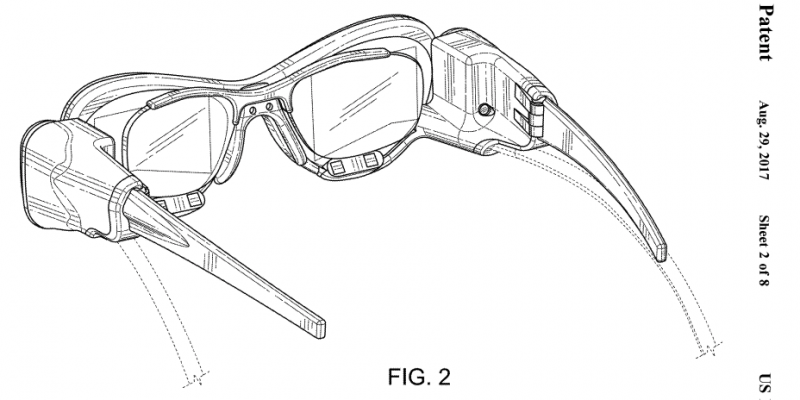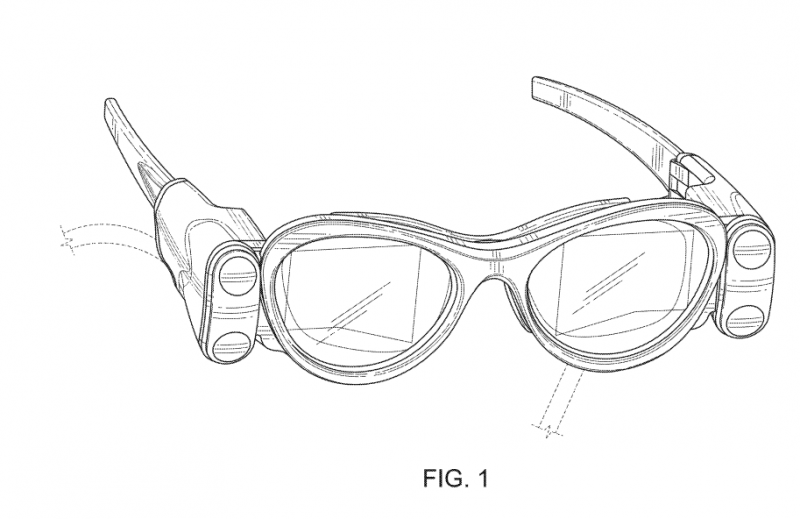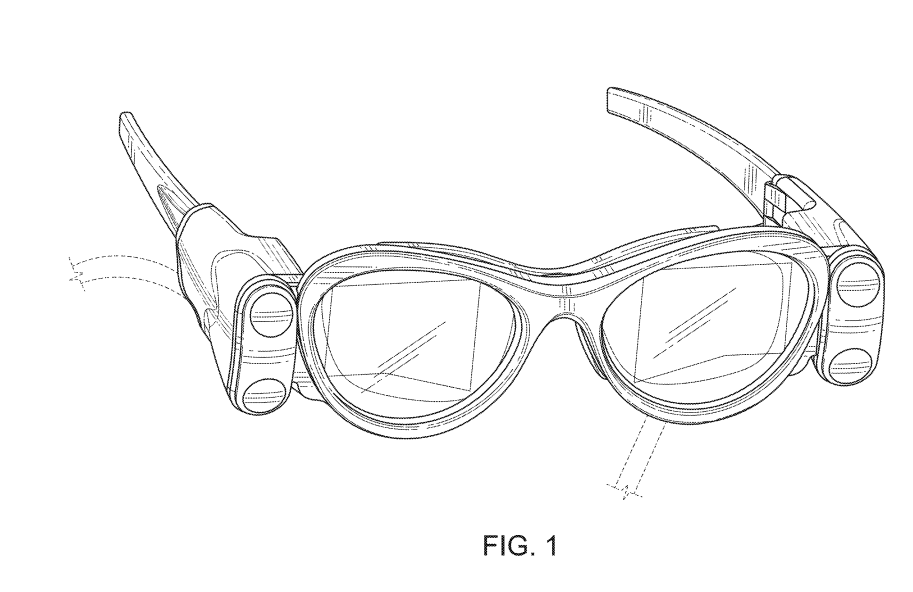Magic Leap is a $4.5 billion Florida startup building a highly anticipated pair of smartglasses, and on Tuesday, a set of new smartglasses drawings from the company surfaced in a patent application.
The design patent application, originally filed in 2015, shows a skinny pair of glasses with oval goggle-like frames, and sensors on the right and left-hand sides of the headset. This is Magic Leap’s second public design patent application.
The glasses are not Magic Leap’s product, said Julia Gaynor, a Magic Leap spokesperson. “As you know, we file lots of patents that take a long time to get approved and so what you are looking at is not our product,” she told Business Insider.
However, sources with knowledge of Magic Leap’s hardware told Business Insider the design shown in the patent was close to Magic Leap’s product in its appearance, but the real hardware is bigger and bulkier, with a section in the middle of the lenses to hold the depth sensor. One person who has previously seen schematics of Magic Leap’s product said that the current design has one camera in each arm, not two as illustrated in the patent filing, and that they are “thick-rimmed like hipster glasses,” but with bulkier arms.
Investors and other VIPs who received Magic Leap demos in the spring said that the headset they tried was smaller than modern VR headsets but bulkier than other glasses technology like Snapchat’s Spectacles. It was described as more like swim goggles with slightly larger lenses.

Those demo units were connected to two wearable packs: a battery the size of two iPhones stacked on top of each other, and a separate computational portion containing the GPU and CPU about the size of a portable CD player. The computing part is worn on the belt while the battery can be slipped into the user's pocket.
Magic Leap is seen as one of the leaders in a hot technology called augmented reality, which uses advanced computers and cameras to integrate graphics into the real world.
Tech giants including Apple and Google (a Magic Leap investor) have recently released software that allows for AR experiences on a phone, but many in the tech industry see the end-game of AR as a pair of smartglasses, like Magic Leap is developing.
Magic Leap declined to comment on whether it would support ARcore, the AR software Google released on Tuesday. "As you know we are building full stack computing - hardware, software, content, etc," Gaynor said.
Magic Leap, which has raised $1.4 billion dollars from investors including Google, Alibaba, and KPCB, has not released a product nor distributed development hardware to software makers. The Financial Times reported earlier this year that the company is preparing its eyeware for a release in 2017.
While the glasses shown the patent filing may be an older, scrapped industrial design - whatever makes it into production will need to have more room for computing - it's still a good peek at the overall look that the startup is going for.
Do you know more about Magic Leap? Contact the author securely and discreetly by email or Confide at [email protected].








